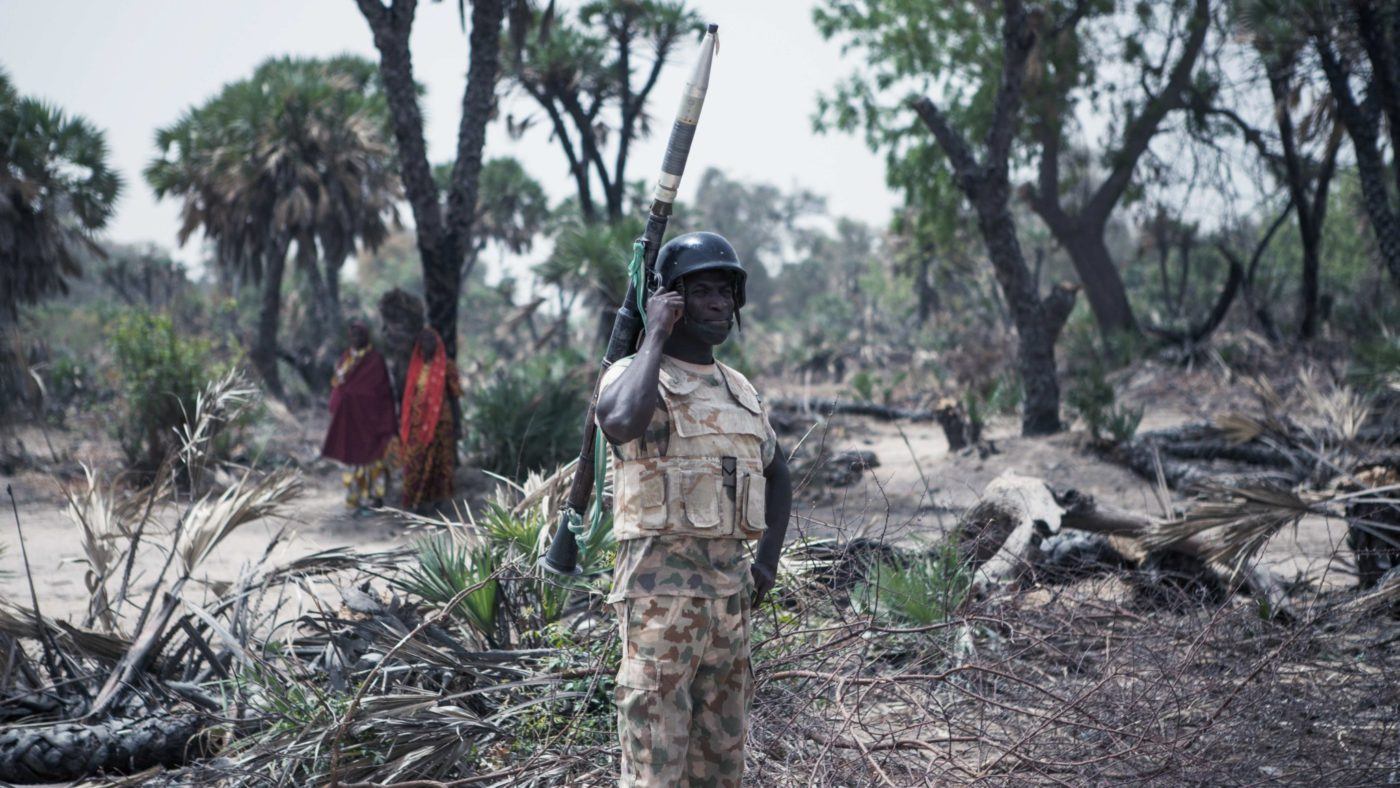The kidnapping of nearly 300 schoolgirls in April 2014 by Boko Haram sparked a worldwide campaign for the Nigerian Government to ensure their safe return. This month, Boko Haram agreed to release 82 of the girls in a prisoner exchange deal, redirecting public attention back to the ongoing conflict in the region.
With the exception of the highly-publicised kidnappings, the terrorist campaign waged by Boko Haram and the subsequent military response by Nigerian security services have gone largely unnoticed outside the country. Yet Boko Haram is responsible for the death of around 15,000 people, as well as the displacement of more than two million since the beginning of the insurgency in 2009. In total, the group’s pursuit of an Islamic caliphate in north-eastern Nigeria has triggered a brutal conflict that has affected more than 14 million people so far.
From the start, the Nigerian government hasn’t always made things easier for itself. Boko Haram’s adoption of more violent tactics in its early years was, in part, a response to the extra-judicial killing of Mohammed Yusuf, the leader and founder of the group, at the hands of the Nigerian police in 2009. After initially retreating underground, Boko Haram returned in 2010 as the deadly terrorist organisation that we know today, armed with a new repertoire of tactics and fuelled by the overwhelming desire to avenge the death of their beloved leader.
The responses of the Nigerian government to Boko Haram has been crucial to both the survival and expansion of the group. During his inaugural address in 2015, President Muhammadu Buhari cited “official bungling, negligence, complacency or collusion” as influential factors in Boko Haram’s evolution into “a terrifying force”. The government’s tendency to opt for the most hard-line measures also added fuel to Boko Haram’s fire, trapping citizens between two brutal forces.
According to Roland Marchal, the government has repeatedly overreacted and, in many cases, killed more Nigerian civilians than members of the organisation they are trying to defeat. Human Rights Watch have accused the Nigerian State of crimes against humanity, with the Joint Task Force found guilty of “physical abuse, secret detentions, extortion, burning of houses, stealing money during raids, and extrajudicial killings of suspects”. Such measures have reinforced Boko Haram’s claim that the Nigerian government is corrupt and repressive, generating both sympathy and recruits for Boko Haram.
However, despite sweeping claims and grand declarations during the beginning of his term, Buhari has followed in the footsteps of his predecessor, Goodluck Jonathan. He continues to treat Boko Haram as a purely military problem. In January 2017, a Nigerian fighter jet bombed a refugee camp which was mistaken for a Boko Haram training ground, killing over 100 refugees and aid workers and wounding many more. Analysts have warned that Buhari’s approach could, again, be doing more harm than good. Worsening economic conditions and rising unemployment within the country have also exacerbated the problem.
The Buhari administration claims that it is well on its way to defeating the insurgency. But Boko Haram has shown its ability to adapt to new circumstances and prove that the threat they pose remains very much alive. The International Crisis Group noted that although the group is now deploying fewer fighters, their use of suicide attacks has increased. The disturbing use of women and children as suicide bombers is also on the rise. Unicef have reported that in the first quarter of 2017, 27 children were used as suicide bombers in the conflict, a stark contrast to the 30 that were deployed in the whole of 2016.
The persistence of a military-based approach to counter-terrorism operations by the Nigerian government has resulted in increased cross-border activities by Boko Haram. The group has expanded into Niger, Cameroon and Chad, increasing the number of terrorism-related fatalities in these states by 157 per cent over the past year, according to the Global Terrorism Index. Boko Haram is now operational in five countries as opposed to three, giving credence to fears that “a once localised hard-line Islamist movement is morphing into a regional jihadist threat”.
The persistence of extremist violence within Nigeria demonstrates just how hard the state security apparatus finds combating and deterring terrorist threats. The predominately military-focused counter-terrorism measures employed by the Government have merely reshaped the Boko Haram insurgency.
Villages continue to be targeted by the Nigerian military, with those fleeing to refugee camps becoming the victims of rape and sexual exploitation by Government officials. Boko Haram have remained active, expanding their operations across the borders with warnings that they are “actively planning to kidnap foreigners” published this month by the Foreign Office.
By failing to address the rising insecurity and social tension that exists across Nigeria, along with widespread corruption within the security forces, the Nigerian government is playing into the hands of Boko Haram as it transforms itself into an unstoppable regional force.


